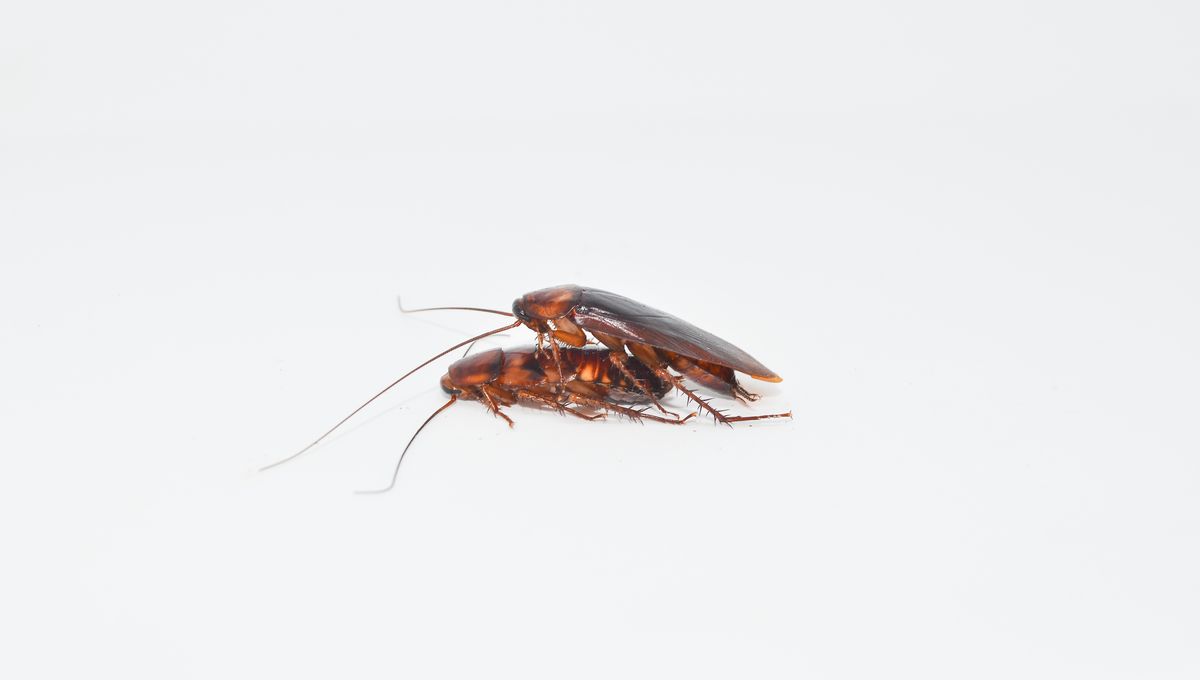
Years of human-imposed selection, such as the use of insecticide baits, have led some cockroaches to develop an aversion to glucose – which has had an unusual impact on their sex life. Recent research has shown that male cockroaches have adapted their mating strategies to compensate, demonstrating a link between behavioral evolution and sexual selection.
Researchers at North Carolina State University, Raleigh, sought to investigate how the rapid evolution of a sensory system can interfere with other behaviors, and how animals may compensate to deal with any conflicts. To explore this, they turned their attention to German cockroaches (Blattella germanica) which have undergone changes to their courtship behaviors due to an adaptive shift in their foraging behavior.
When seeking a mate, male cockroaches produce a sweet fluid on their backs that they use as a “nuptial gift” to entice females. While the female mounts the male to enjoy this sugary treat, the male locks onto her to start copulating – which can take up to 90 minutes.
However, human attempts to kill cockroaches with insecticides containing glucose, which covers up the bitter taste of the poison, have led some females to become averse to sugar. As such, they now reject the male’s sugary gifts. This is because the female’s saliva breaks down the maltose in the back secretion into glucose, causing them to spurn the male and dismount early.
This rapidly evolved adaptive trait has been known for over thirty years. In 2013, Ayako Wada-Katsumata and colleagues found that the cockroaches that developed this aversion to glucose showed changes in the peripheral gustatory system, the sensory system responsible for perceiving taste and flavor. The changes meant that the insects now registered glucose as bitter.
This got Wada-Katsumata curious about whether this same aversion would impact how female roaches responded to male nuptial secretions. She and her colleagues Eduardo Hatano and Coby Schal, who also worked on the 2013 study, recorded 251 mating pairs of German cockroaches (some that had evolved the glucose-aversion and others that hadn’t) with an infrared-sensitive camera, and analyzed them with frame-by-frame software. The roaches were then classified into two groups – those who succeeded in mating and those who did not.
The researchers found that female roaches with glucose aversion stopped feeding on the secretions of males that had not developed the same aversion, and didn’t mate with them. However, the same females did feed on males that also had the aversion, which allowed them time to successfully mate. They also found that the males who succeeded in copulating were able to lock onto the females within 2.2 seconds of them being mounted, which is over a second faster than normal.
When analyzing the nuptial secretion of the glucose-averse cockroaches, they found that it contained mostly maltotriose, a trisaccharide made up of three glucose units which is more resistant to the female’s salivary enzymes. Maltotriose takes about five minutes to break down into glucose, so by the time the female detects the sweetness, the male has had a chance to lock on and start the copulation process. Once it has started, the female won’t escape.
The study shows that there is a substantial link between adaptive changes in behavior through natural selection and compensatory sexual behaviors. “Although rapid adaptive evolution generates sexual mismatches that lower fitness” the authors wrote, “compensatory behavioral evolution can correct these sensory discrepancies.” It demonstrates how animal behavior can evolve, especially in relation to human activity.
The study was published in Proceedings of The Royal Society B.
Source Link: Cockroach Sex Is Evolving And We’re To Blame